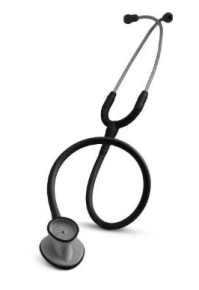Last year, as part of the 2020-2021 budget, the New York State Legislature made significant changes to the NYS Mandatory Compliance Program requirement.
|
|
||||
|
Beginning with dates of services of January 1, 2020, all non-exempt New York State Medicaid payments to providers will be uniformly reduced by 1%. Recent changes to the New York State Medicaid Program affect vaccine administration for pharmacies, claiming process for nurse practitioners, documentation requirements for transportation providers, and prior authorization for physical and occupational therapists. We summarize these changes. New York State Medicaid has a new vendor to implement the new Medicaid Management Information System (MMIS) that will eventually replace the current vendor (eMedNY). The new vendor, Xerox State Healthcare LLC, won a five year contract with the State. Implementation of the new system will occur in two phases over an eighteen month period. New York Office of the Medicaid Inspector General’s (OMIG) 2013 annual report provides an important insight into the agency’s activities, recoveries and where it plans to focus its resources in the upcoming year. New York State Department of Health (DOH) recently issued a clarification concerning certain pharmacy claims that were rejected because the ordering/prescribing/referring/attending (OPRA) provider was an unlicensed resident, intern or a foreign physicians in training programs. It’s that time of the year when qualifying providers enrolled with the NYS Medicaid Program must certify that they have a adopted, implemented and maintained an effective mandatory compliance program. The NYS Office of the Medicaid Inspector General (OMIG) is tasked with responsibility of overseeing that providers meet this requirement. Can a provider bill a beneficiary all or part of the difference between the provider’s charged fees and the payment received from NJ Medicaid or managed care plan? The NJ Department of Human Services, Division of Medical Assistance & Health Services (Department) recently answered that question. The NYS Medicaid recently informed referring and servicing providers that, effective for services provided on and after October 1, 2013, claims will be denied if they include the NPI of non-enrolled ordering, prescribing, referring or attending provider (OPRA). Below we discuss some of the changes. Every year the New York State Office of the Medicaid Inspector General (OMIG) publishes a work plan that outlines the agency’s focus in the coming year. As in previous years, the targets of agency’s audits and investigations this work plan cycle remain physicians, dentists, laboratories, transportation providers, pharmacies and DMEs, as well as hospitals and home and community health service providers. Below we discuss some of OMIG’s planned integrity activity. New York State Medicaid Program posted new applications on April 1, 2013 for non-billing providers that order, prescribe, and/or refer beneficiaries with fee-for-service Medicaid coverage. New Jersey Medicaid required all such providers to be enrolled an “non-billing” providers by Jan. 1, 2013. Most providers know that fees paid by the New York State Medicaid program are considered to be payment in full. This means that as a requirement of participating with Medicaid, and with the exception of co-payments, providers may not bill Medicaid beneficiaries for covered services. Providers may, however, enter into private pay agreement with Medicaid beneficiaries and the article below addresses certain important aspects of that relationship. When a provider participates in the New York State Medicaid Program, a provider agrees to accept payment as payment in full for the provided services. The same applies to providers who accept Medicaid Managed Care or Family Health Plus (FHPlus) plans. The final 2011-12 New York State budget (Chapter 59 of the Laws of 2011) requires a 2% across the board reduction to most Medicaid payments for dates of service on or after April 1, 2011. The reduction will remain in effect for dates of service through March 31, 2013. These provisions were enacted to meet |
||||

